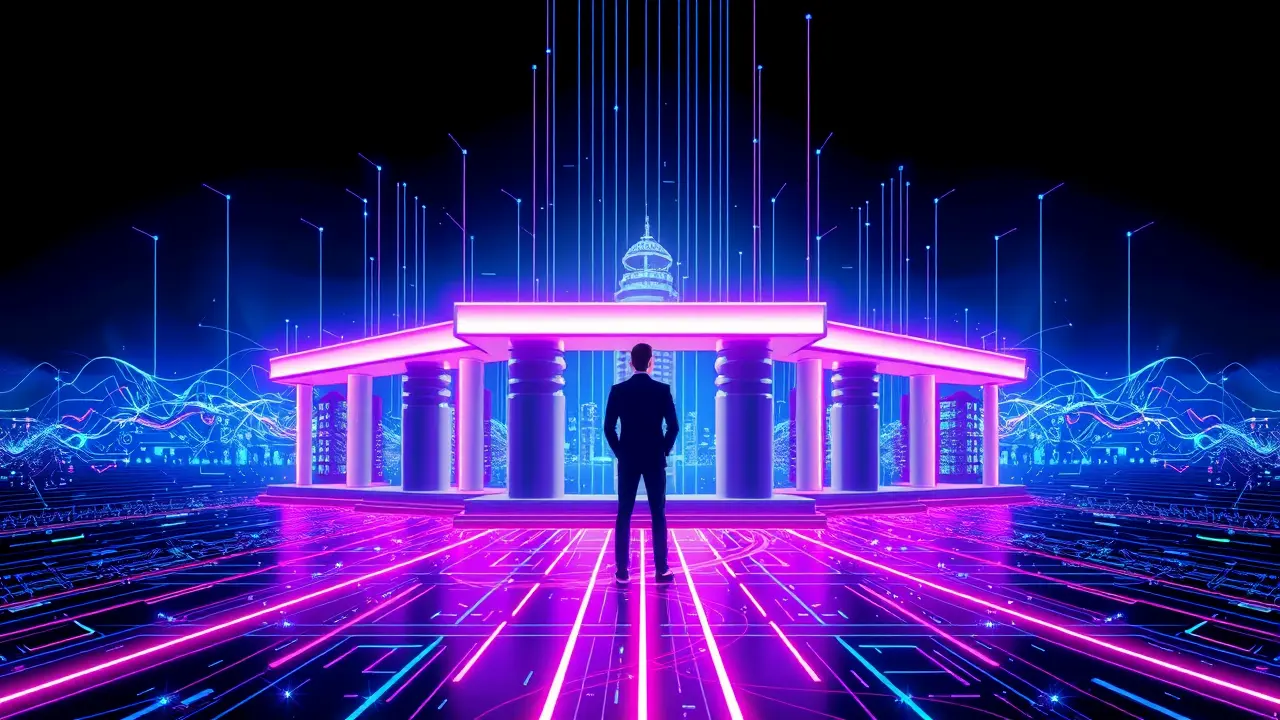
AIai safety & ethicsAI Impact on Jobs
Will AI Replace the Corporate Firm?
MI
Michael Ross
21 hours ago7 min read
For centuries, the corporate firm has stood as the bedrock of economic life, a meticulously engineered hierarchy translating human labor into tangible value through established routines and managerial oversight. This organizational paradigm, which defined modern capitalism from the Industrial Revolution to the rise of the multinational conglomerate, is now facing its most profound existential challenge.The catalyst? The emergence of agentic AI, systems capable of autonomous decision-making, strategic coordination, and the very managerial work that once required a human chain of command. We are not merely talking about automation replacing manual tasks; this is the automation of the executive suite, the digitization of the C-suite's cognitive functions.The implications ripple far beyond quarterly earnings reports, forcing us to confront fundamental questions about the nature of corporate structure, accountability, and even the purpose of the firm itself. Historically, as Ronald Coase theorized in his seminal 1937 work 'The Nature of the Firm,' companies existed to minimize transaction costs—the frictions of constantly negotiating in the open market.Hierarchy provided efficiency. But what happens when AI-driven networks can coordinate complex projects with near-zero friction, dynamically assembling and disbanding teams of human specialists and other AI agents for specific tasks, potentially rendering the rigid, permanent corporate shell obsolete? This shift evokes Isaac Asimov's explorations of governance by non-human intelligence, yet it's unfolding not in fiction but in the real-world laboratories of tech giants and agile startups experimenting with AI-managed projects and decentralized autonomous organizations (DAOs).The trajectory suggests a future where the traditional firm doesn't vanish overnight but gradually atrophies, its functions outsourced to a fluid ecosystem of AI platforms and human gig-workers. Consider the potential consequences: on one hand, proponents envision a utopia of hyper-efficiency, where AI eliminates bureaucratic bloat, optimizes global supply chains in real-time, and democratizes access to sophisticated managerial capabilities for solo entrepreneurs and small teams.The cost savings and speed-to-market could be staggering. Yet, this brave new world is fraught with peril.Who is liable when an AI's strategic decision leads to a massive market failure or an ethical catastrophe? Our current legal frameworks, built on the principle of corporate personhood, are ill-equipped to handle an AI agent acting outside direct human control. The specter of mass white-collar unemployment looms, not just for administrative staff but for mid-level managers, analysts, and even certain executives whose roles are predicated on information synthesis and routine coordination.Furthermore, the concentration of power is a critical concern. If the most powerful agentic AIs are developed and controlled by a handful of existing tech behemoths, we risk creating an unassailable digital oligarchy, a form of corporate feudalism more entrenched than any in history.The transition will not be uniform across economies. Nations with robust digital infrastructure and flexible regulatory environments, like the United States, China, and Singapore, may spearhead this transformation, while others could struggle to adapt, exacerbating global economic divides.The very social contract between capital and labor, already strained, will require a complete renegotiation. The corporate firm was more than an economic unit; it was a social institution that provided identity, community, and a pathway for career advancement for millions.Its potential dissolution demands a parallel conversation about universal basic income, lifelong learning, and new forms of social organization. The endgame is not a foregone conclusion.The future of economic organization likely lies not in a simple binary of human-run firms versus AI-run networks, but in a complex, hybrid symbiosis. The most resilient entities may be those that learn to integrate human creativity, ethical judgment, and strategic vision with the relentless analytical power and coordination efficiency of agentic AI. The question is no longer if AI will transform the corporate firm, but how we will navigate the turbulent, uncharted waters of this great unbundling, ensuring that the new architectures of economic life serve humanity, rather than the other way around.
#editorial picks news
#artificial intelligence
#economic structure
#management automation
#future of work
#organizational change
#capitalism
#decision-making
Stay Informed. Act Smarter.
Get weekly highlights, major headlines, and expert insights — then put your knowledge to work in our live prediction markets.
© 2025 Outpoll Service LTD. All rights reserved.